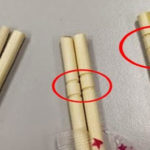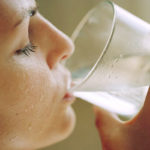Pork liver is a food that contains a lot of protein, fat, vitamins, and minerals. Despite being a delicious dish, it also poses many risks to health. Pork liver can contain pollutants from the environment and food, especially when pigs are raised and processed incorrectly. The old intestine of the pig is where waste from the digestion process is stored, making it more prone to contamination. Whether you choose young or old liver, we should buy from reputable establishments, choose fresh and normal-looking parts, and clean them thoroughly. Pork liver needs to be cooked thoroughly to eliminate bacteria and parasites that may exist in it. In addition, even if you particularly enjoy dishes made from pork liver, you should not eat them too much.
Although pork liver is delicious, not everyone should eat this dish. Here are three groups of people who should stay away from pork liver.
– People with gout
Pork liver is a type of food that can increase the amount of uric acid in the blood, leading to the formation and accumulation of urate crystals. Urate crystals are solid, sharp-edged crystals that accumulate in the joints of the toes, fingers, and cause severe pain. In addition, when urate accumulates, the joints will also become hot, red, and swollen.
Therefore, people with gout should stay away from pork liver to prevent disease recurrence and pain. In addition, people with urinary stones should not eat pork liver because the accumulation of urate can cause impaired kidney function and urinary tract infections.

– People with high blood fat
Pork liver is a food that contains a lot of cholesterol, especially bad cholesterol. Regular consumption of pork liver will increase blood fat. Therefore, people with high blood fat should stay away from pork liver, and if they eat it, they should only eat a few pieces.
Pork liver is also not suitable for people with cardiovascular diseases, metabolic diseases, atherosclerosis, and diabetes.
– People with poor digestion
Pork liver contains a lot of fat, which is difficult to digest. Therefore, people who have digestive disorders, intestinal infections, or often suffer from stomachaches or diarrhea should avoid this dish.
Overweight and obese people should also limit their consumption of pork liver to avoid weight gain.
People who are sick or ill should not eat pork liver as it is difficult to digest and can cause discomfort and fatigue.
Exploring the Pros and Cons of Sleeping in an Air-Conditioned Room
Is sleeping with an air conditioner a good idea? As concerns over the adverse effects of air conditioning on our health increase, it’s important to understand the risks and rewards of using air conditioning while sleeping. Let’s examine the benefits and drawbacks of sleeping with an air conditioner, and the protective measures one should take.



































